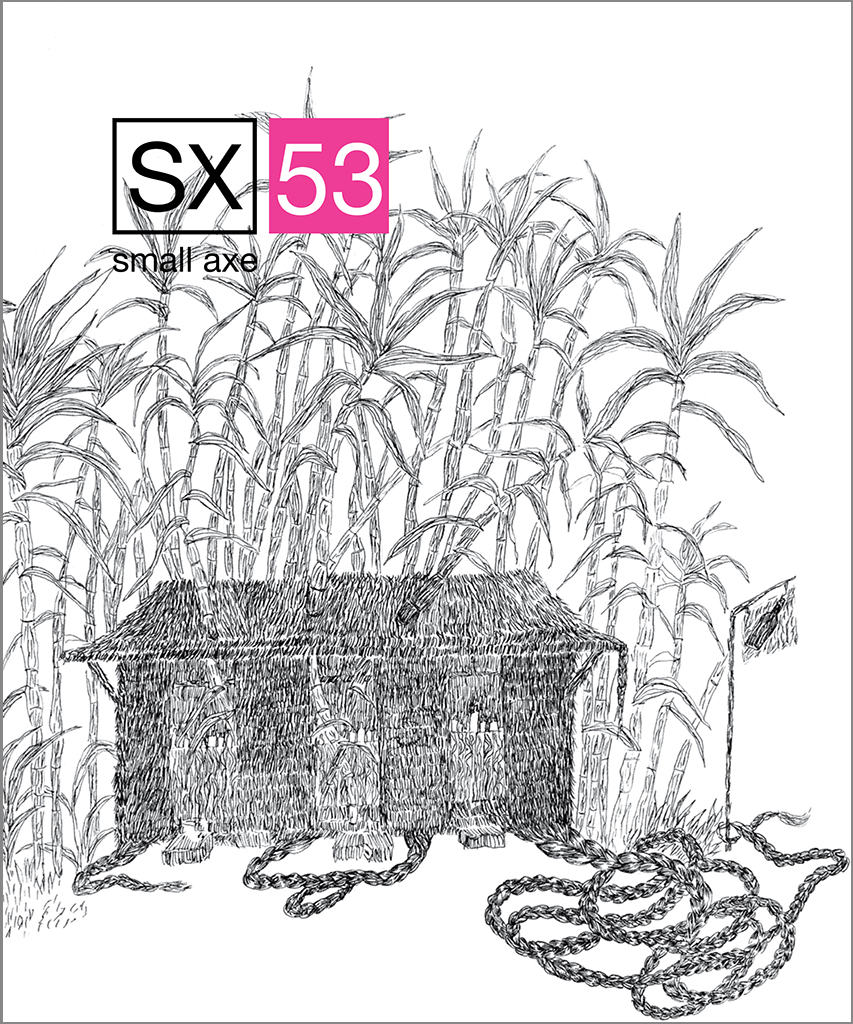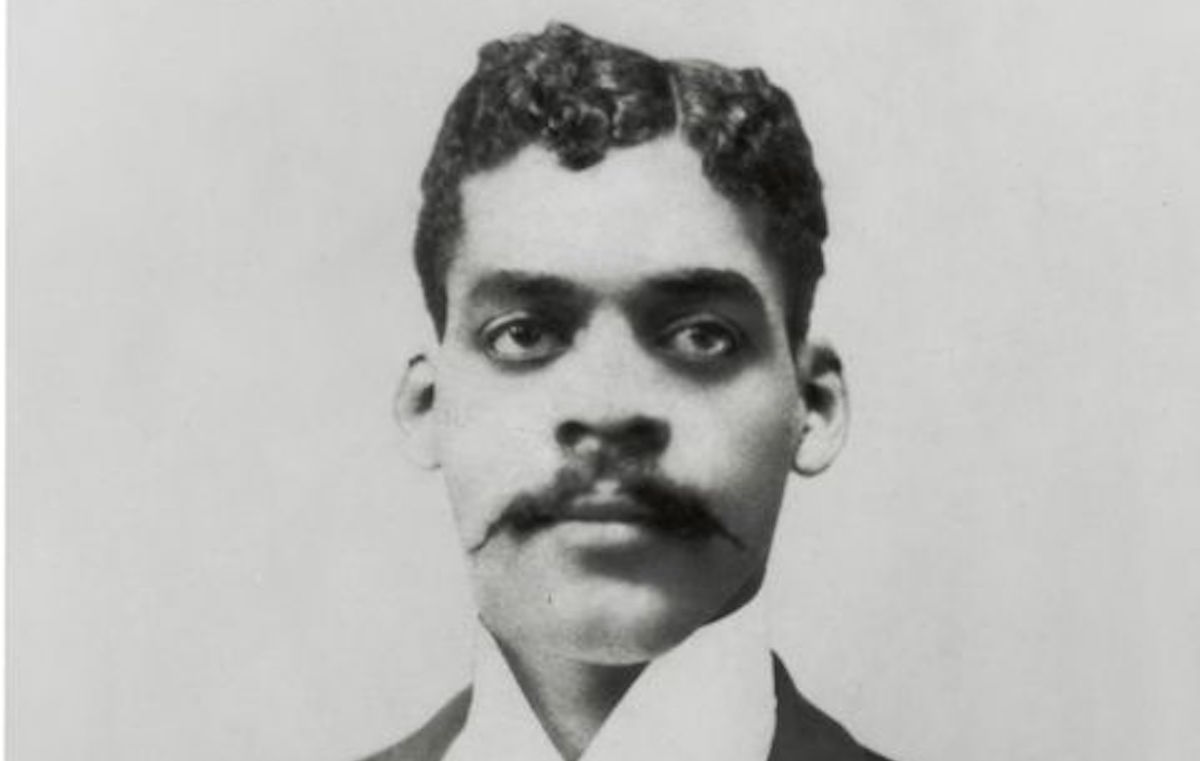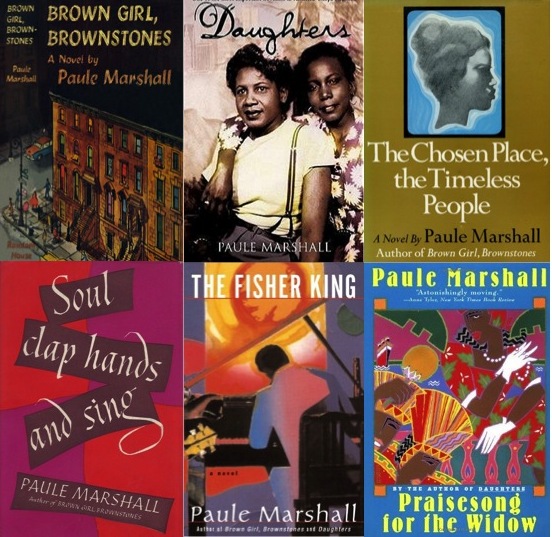sx blog
Our digital space for brief commentary and reflection on cultural, political, and intellectual events. We feature supplementary materials that enhance the content of our multiple platforms.
Women in Translation Month Q&A with Kaiama L. Glover

Kaiama Glover, of sx archipelagos, spoke to Book Culture this month about her work on Haitian writer Marie Vieux-Chauvet. Glover recently translated Vieux-Chauvet's Dance on the Volcano, and previous edited the volume Revisiting Marie Vieux-Chauvet: Paradoxes of the Postcolonial Feminine. In the interview, Glover speaks about her role as a translator, as a woman and of women. To find the full interview, please visit Book Culture here.
sx salon 25 Available Online
sx salon 25 Available Online

With its twenty-fifth issue, sx salon welcomes Rosamond S. King as creative editor. As a scholar, creative writer, activist, and performing artist, Rosamond brings a wealth of experience in Caribbean cultural production to sx salon, evident in her "Statement on Digital Literature" included in this issue. She is particularly interested in fostering the growth of Caribbean digital literature, a natural development not only of the sx salon platform but of Caribbean literature itself, with roots in earlier experimental forms and engagements with new technologies. Included in the issue is Rosamond’s own digital poem, “Bring Back.”
Alongside Rosamond’s statement and poem, in Poetry + Prose this issue features Patrick Chamoiseau’s poetic tribute to Derek Walcott, translated by Charly Verstraet and Jeffrey Landon Allen; a hauntingly short poem by Anu Lakhan; and original prose fiction by Katherine Atkinson and Cynthia James.
Reviews this issue include Warren Harding’s review of Shalini Puri’s monograph on the Grenada Revolution; Kristina Huang’s review of Elizabeth Nunez’s latest novel; and Sophie Harris’s review of Lawrence Scott’s recent short story collection. Also included are reviews of two ambitiously comprehensive studies of representations of the Haitian Revolution: Megan Jeanette Myers reviews Víctor Figueroa’s Prophetic Visions of the Past: Pan-Caribbean Representations of the Haitian Revolution and Erin Zavitz reviews Marlene Daut’s Tropics of Haiti: Race and the Literary History of the Haitian Revolution in the Atlantic World, 1789–1865.
For a full table of contents for this issue, see below.
_____________________________
Table of Contents
Introduction and Table of Contents—Kelly Baker Josephs
Reviews
The Silences, too, Deserve a Place—Warren Harding
A review of The Grenada Revolution in the Caribbean Present: Operation Urgent Memory, by Shalini Puri
On Inheritance and Reinvention—Kristina Huang
A review of Even in Paradise, by Elizabeth Nunez
A Question of Home—Sophie Harris
A review of Leaving by Plane, Swimming Back Underwater, and Other Stories, by Lawrence Scott
The Haitian Revolution in Caribbean Literature: A Synechdochal Study—Megan Jeanette Myers
A review of Prophetic Visions of the Past: Pan-Caribbean Representations of the Haitian Revolution, by Víctor Figueroa
Representing the Unthinkable: The Haitian Revolution in Print—Erin Zavitz
A review of Tropics of Haiti: Race and the Literary History of the Haitian Revolution in the Atlantic World, 1789–1865, by Marlene Daut
Prose
Statement on Digital Literature—Rosamond S. King
The Man Who Took Up All The Space—Katherine Atkinson
In the Laundry Room—Cynthia James
Poetry
Patrick Chamoiseau, translated by Charly Verstraet and Jeffrey Landon Allen
Anu Lakhan
Rosamond S. King
Call for Papers: Black Portraiture[s] IV: The Color of Silence
Call for Papers: Black Portraiture[s] IV: The Color of Silence

Black Portraiture[s] IV: The Color of Silence - Call for Papers / Call for Proposals
Event Timing: March 15-17, 2018.
Event Address: Havana, Cuba
BLACK PORTRAITURE[S] IV: The Color of Silence is the eighth conference in a series of conversations about imaging the black body. We invite artists, activists, and scholars to reflect on the visual expressions of national imaginaries and political ideologies that negate racial differences and render black subjects invisible. Such ideologies are prevalent in Latin America and the Caribbean, where metaphors of mixture (mestizaje or mestiçagem) and racial harmony ignore inequality and discrimination. Similar formulations are to be found elsewhere, however, as in republican France, or among proponents of a post-racial United States, or in references to a South African “rainbow nation”, or in Jamaica’s well-known “out of many, one people” motto. Presenters will engage a range of historical and contemporary topics such as biennales, exhibitions, movements, individual artists and collectives, art markets, politics, tourism, sites of memory, Afrofuturism, fashion, dance, music, film, art, and photography. We invite papers and panel proposals on relevant topics.
Deadline for submissions: September 15, 2017
Notice of acceptance: October 27, 2017
All proposals must be submitted through completion of this online form.
The conference will be held on Thursday through Saturday, March 15-17, 2018, in Havana, Cuba. As the status of the US/Cuba relations are in flux, more information about travel will be available when the new Administration's policies are enacted. We will keep you posted.
Please note that as with most academic conferences, we are unable to provide institutional funding for travel to Black Portraitures.
Black Portraiture[s] IV is a collaboration with the U.S. Ambassador to Cuba, Jeffrey DeLaurentis; Hutchins Center for African & African American Research, Harvard University; New York University’s LaPietra Dialogues, Tisch School of the Arts, and the Institute for African American Affairs.
Please contact blackportraitures@gmail.com with questions.
Read more about Black Portraitures here.
Listening to Small Axe 53
Listening to Small Axe 53

by Tiana Reid
This second Small Axe playlist is more “listening with” than “listening to.” The music accompanying the new issue, 53, conjures hallucinations, sonic graffiti, gestures to freedom, dancing time, the afterlife of the beat, memory redoubled, kitchen talk, and the insistent pressure of noise. Those are just some keywords. The sounds—by Port-au-Prince-born and Montreal-raised KAYTRANADA, The Funkees and their afrorock digressions, the immortal Prince, and more— have an elastic correlation to the essays in the journal. But it's that filament connection between text and sound, the jump betweens vibration and vision, allusions and affect, references and romance, that constitutes the magic of music. That is how I hear it.
Vanessa K. Valdés on the "Father of Black History"

Vanessa K. Valdés, book review editor of sx salon, was recently interviewed for NPR's Latino USA podcast on the life of Arturo Schomburg-- a Puerto Rican living in New York City around the Harlem Renaissance. The podcast episode gives a brief history of Schomburg's life and role as the "father" of Black history. The Schomburg Center for Research in Black Culture, in which Schomburg's donated personal papers comprise a majority of the collection, is one of the largest resources of Black history in the world. In the podcast, Valdés asks how we conceive of blackness.
You can listen to the full episode, here.
A Special Issue of Anthurium: A Caribbean Studies Journal
A Special Issue of Anthurium: A Caribbean Studies Journal

Edited by Kelly Baker-Joseph, editor of sx salon, this issue of Anthurium is collected around the work of Paule Marshall as seen today--how Marshall has influenced contemporary writing, predicted social stratification, and the enduring relevance of Marshall's work. You can access each publication from the issue, below.
The Work of Paule Marshall Today
Kelly Baker Josephs
“You have permission to do this” : John Keene Reflects on Paule Marshall’s Influence
John Keene
Ghosts in the Posthuman Machine: Prostheses and Performance in The Chosen Place, the Timeless People
Justin Haynes
Paule Marshall Reimagining Caliban and Prospero in The Chosen Place, The Timeless People
Shirley D. Toland-Dix
“Threads thin to the point of invisibility, yet strong as ropes” : Afrofuturistic Diaspora in Paule Marshall’s Praisesong for the Widow
Janelle Rodriques
The Profane Ear: Regimes of Aural Discipline in Paule Marshall’sThe Fisher King
Petal Samuel
“Her Special Music”: Wild Women and Jazz in Paule Marshall’sThe Fisher King
Patricia G. Lespinasse
Water, Roads, and Mapping Diaspora Through Biomythography
Lia T. Bascomb
“How You Mean?” Speech, Resistance, and the Contemporary Relevance of Paule Marshall
Jason T. Hendrickson
Kaiama Glover Writes on Zombies in Public Culture
Kaiama Glover Writes on Zombies in Public Culture

In the May issue of Public Culture, Kaiama L. Glover-- editor of sx archipelagos-- writes about the role of the contemporary zombie in her essay “Flesh like One’s Own”: Benign Denials of Legitimate Complaint.
Abstract
This essay looks pointedly at a broad phenomenon wherein ostensibly benign discourses—from the news media to the Hollywood film industry to humanitarian aid—grant permission for North Atlantic denial of human proximity to peoples of the so-called global South. Taking the figure of the (Haitian) zombie as pivot point, the essay reflects on the continuity between dehumanized discursive and visual representations of (postearthquake) Haitians, sub-Saharan Africans, and other immiserated “others.” In question is what exactly the contemporary zombie allows “First World” citizenries to get away with in their dealings with the “Third World.” What thought project does the zombie myth sustain and participate in? How does it link our feelings about blacks, migrants, refugees, and the poor into a long-historical narrative of distancing and (pathologized) ontological difference?
You can access the full essay through Public Culture at Duke University Press, here.
sx salon books for review
sx salon books for review

Featured book:
Istwa across the Water: Haitian History, Memory, and the Cultural Imagination, by Toni Pressley-Sanon (2017)
We offer the following partial list in order to highlight newly published books in Caribbean Literature and Caribbean Studies. If you have any questions about sx salon book reviews, please contact our book review editor Vanessa K. Valdés (vkv@smallaxe.net). Click here to view list on sx salon site.
Fiction
The Tower of the Antilles, Achy Obejas (2017)
Dance on the Volcano, by Marie Vieux-Chauvet, trans. Kaiama L. Glover (1957/2017)
Love’s Promise, by Opal Palmer Adisa (2017)
Moving Forward Sideways Like a Crab, by Shani Mootoo (2017)
Hadriana in All My Dreams, by René Depestre, trans. Kaiama L. Glover (2017)
Gone to Drift, by Diana McCauley (2016)
Le miroir d’Anabelle et autres récits, by Lyonel Trouillot (2016)
The Bone Readers, by Jacob Ross (2016)
The Orchid House, by Phyllis Shand Allfrey (1953/2016)
The Angels’ Share, by Garfield Ellis (2016)
Tracing Jaja, by Anthony Kellman (2016)
J--, Black Bam and the Masqueraders, by Garth St. Omer (2016)
Poetry
My Mother Was a Freedom Fighter, by Aja Monet (2017)
Pitch Lake, by Andre Bagoo (2017)
Kumina Queen, by Monica Minott (2016)
Absolute Solitude, by Dulce María Loynaz, trans. By James O’Connor (1953/2016)
Fossil, by Maya Chowdhry (2016)
Kingston Buttercup, by Ann-Margaret Lim (2016)
Beastgirl & Other Origin Myths, by Elizabeth Acevedo (2016)
Cannibal, by Safiya Sinclair (2016)
Only the Road / Solo el camino: Eight Decades of Cuban Poetry, ed. by Margaret Randall (2016)
Speak from Here to There, by Kwame Dawes and John Kinsella (2016)
Book of the Dead, by Lasana M. Sekou (2016)
Measures of Expatriation, by Vahni Capildeo (2016)
Memoir
Hunger: A Memoir of (My) Body, by Roxane Gay (2017)
Non-Fiction
Bankers and Empire: How Wall Street Colonized the Caribbean, by Peter James Hudson (2017)
Suspect Freedoms: The Racial and Sexual Politics of Cubanidad in New York, 1823-1957, by Nancy Raquel Mirabal (2017)
Haiti and the Uses of America: Post-U.S. Occupation Promises, by Chantalle F. Verna (2017)
Direct Democracy: Collective Power, the Swarm, and the Literatures of the Americas, by Scott Henkel (2017)
Write of Passage: Stories of the American Era of the Panama Canal, by the Panama Canal Museum (2017)
Contrary Destinies: A Century of America’s Occupation, Deoccupation, and Reoccupation of Haiti, by Leon D. Pamphile (2017)
Carnival and National Identity in the Poetry of Afrocubanismo, by Thomas Anderson (2017)
The Black Jacobins Reader, ed. by Charles Forsdick and Christian Høgsbjerg (2017)
Island People: The Caribbean and the World, by Joshua Jelly-Schapiro (2016)
The Caribbean Oral Tradition: Literature, Performance, and Practice, ed. by Hanétha Vété-Congolo (2016)
White Innocence: Paradoxes of Colonialism and Race, by Gloria D. Wekker (2016)
The Colour of Shadows: Images of Caribbean Slavery, by Judy Raymond (2016)
Gendered Geographies in Puerto Rican Culture: Spaces, Sexualities, Solidarities, by Radost Rangelova (2016)
She is Cuba: A Genealogy of the Mulata Body, by Melissa Blanco Borelli (2016)
Calypso Magnolia: The Crosscurrents of Caribbean and Southern Literature, by John Wharton Lowe (2016)
Léon-Gontran Damas: Une Négritude entière, ed. by Hanétha Vété-Congolo (2016)